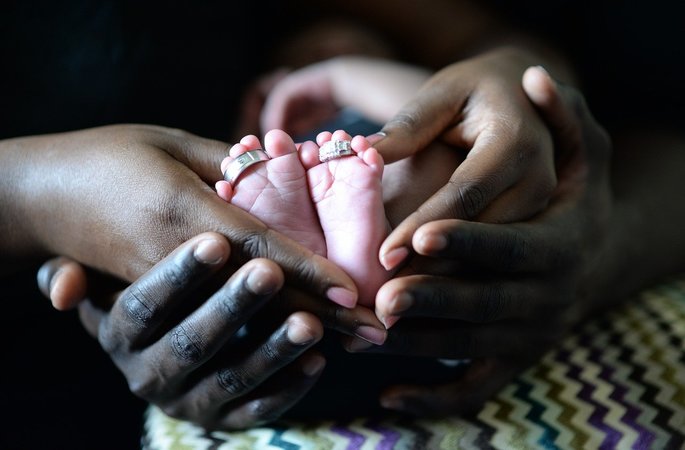Infertility affects millions of people of reproductive age worldwide and has an impact on their families and communities. Estimates suggest that between 48 million couples and 186 million individuals live with infertility globally.[1] Childlessness is the state of being without offspring. It results from infertility/impotence of either of the couples. Every couple expects to reproduce. When they do so, it becomes a sign of fecundity.
Freedman (1968, p.371) defines fecundity as: “the capacity for reproduction while fertility as the actual reproduction”. Fecundity is actualised in giving birth. According to Banzikiza (1985), fecundity is broader in meaning than fertility.[2]
In the African context, children mean a lot. They are continuity to a family’s lineage. They are believed to be the future. They are supporters in old age. They help contribute to family labour and, in some cases, family income. Infertility affects both males and females.
In the male reproductive system, infertility is most commonly caused by problems in the ejection of semen, absence or low levels of sperm, or abnormal shape (morphology) and movement (motility) of the sperm. In contrast, in the female reproductive system, infertility may be caused by a range of abnormalities of the ovaries, uterus, fallopian tubes, and endocrine system, among others[3].
Infertility can be primary or secondary. Primary infertility is when a person has never achieved a pregnancy, and secondary infertility is when at least one prior pregnancy has been achieved[4]. Women who have never had children are treated harshly by society than those who have at least had a child.
Sometimes they get mocked and asked, “where is your baby” sometimes, they are told, “all women your age have children”. This is echoed by Morell (1994), who explains that motherhood is celebrated while childlessness is viewed as a sorry state.[5] In as much as children are highly appreciated, some people choose to be childless in some parts of the world. Morell (1994) calls this voluntary or intentional childlessness. However, some people might perceive children as burdensome and too expensive to take care of due to some socio-economic factors.
Some look at children as a disturbance to their marriage and peace, whereas some think of them as a hindrance to a thriving career.
Infertility is an issue that is never discussed in many African homes. It is considered a taboo subject, especially if it is the husband who is infertile. In Africa, men do not accept that they are infertile or have infertility problems. More often it is the women who get blamed even if she is healthy. When wives in a family with infertility problems go to the hospital and are confirmed to be healthy, the husband will not accept going for fertility tests with her.
In Africa, it is assumed that every man is fertile and can father children. There are very few support systems, if any, for childless mothers. Many prefer to suffer in silence. Even opening up to the infertility issue is a heavy burden for many women because, whatever the case, society will always judge them.
When a couple remains childless, they are deemed selfish, self-oriented, and workaholics, although they are fertile. They are assumed to dislike children and only want a comfortable life without any responsibility[6]. It is the norm in many families after the wedding; relatives start counting when the couple will invite them for a baby shower, meaning when the woman has given birth, after 9 months, curious eyes and questions befall the couple, especially the wife.
Childlessness has resulted in families breaking up, and in some instances, it has been responsible for conflicts between husband and wife.
Sometimes friends to a husband suggest that he gets a second wife or chase away the first wife because childlessness is deemed an embarrassment in many communities and highly stigmatised.
Mbiti (1969) echoes that argues that for an African to die without getting married and without children is to be completely cut off from human society, to become disconnected, to become an outcast and to lose all links with humankind. Marriage and sex were held sacred because the future of the community depended on them. This explains why there were many taboos attached to marriage and sex. Some women even get pushed into having extra-marital affairs to save face when their husbands could not father and end up having children to keep their marriages because society treats harshly women who are childless.
There are derogatory statements for childless women and men who do not get married; for example, an infertile person is called buoch among the Luo community, which loosely translates to being stunted or unproductive. Many communities view childlessness as interference with the flow of life. Ochieng[7] noted that if a couple is childless, they consult a diviner, and tradition allows for polygamous marriage if the first wife is unable to give birth. Sometimes in-laws pressure newly married women to give birth. A mother in law would keep asking her daughter in law, when will you name me? Whereas the father-in-law pressures the daughter-in-law by asking when is she going to name a child after him. No questions are directed to males because they are assumed to be fertile, and the burden of proving fertility falls squarely on a women’s shoulder and not a man.
Furthermore, many communities associate barrenness with evil.
Childless women are poorly treated, with some communities labelling them as not being fully developed. In Africa, couples who decide not to have children are deemed selfish and often asked, “Who will take care of you when you grow old?”. Women even lose their own identity and have to be identified through their children. Suppose your child’s name is Onyango or Otieno, for example, among the Luo community. In that case, your name will change from Margaret to min Otieno meaning mother to Otieno. Among the Agikuyu community, you are named nyina was Njoki, meaning mother to Njoki. Among the coastal communities, mothers are named Mama.
Fertility and the weight associated with childbearing is responsible for the growing syndicate of child stealing in many parts of Africa. There are often complaints of children being stolen in maternity hospitals.[8] Sometimes, the childless mother is responsible for stealing. In their times, the theft is done by a syndicate, and the child is delivered to the would-be ‘owner’. These children are sold for as little as $400[9]. Imagine a human being sold at $400 having been stolen from their mother and family?. Sometimes the stealing is done by people familiar to the new mothers. It is done by strangers who pretend to be good Samaritans helping carry the new baby. For couples who lose their babies through theft at birth, the loss is often a lifelong experience of anguish and anxiety. For example, in the case of the Kimundi[10] family, reported on the Standard, whose newborn son was stolen 52 years ago, The family is still in pain to date.
In some instances, when a mother’s child dies at delivery, there are attempts to swap the dead child with another baby within the maternity because society looks down upon women who have not borne children. The death of a child further puts pressure on new moms, reinforcing the urgency to get another child as soon as possible.
Childless women also go through verbal abuse, even by fellow women. Being without a child makes women be accorded a lower status in many African communities. Motherhood continues to define an individual woman’s treatment in her community, her self-respect, and her understanding of womanhood.[11] Since a wife has no residence rights in her husband’s house after his death, except through her son, not having a son means not having a rightful place as an older person.
Many childless widows return to their paternal compound but live in marginal conditions[12]. Sadly, infertility stigma extends to a woman’s death[13], with different rituals accorded to married women with children while those without children are accorded less respect even at the burial.
For example, within the Luo community of Kenya, childbearing is an obligation that every couple must fulfil; when this is not met, the couple faces several challenges. This is due to the importance the Luo community accord to children.
Children ensure the continuity of the lineage, ensuring the immortality of the dead parents, among others[14]. On the other hand, Luo childless women face several challenges such as alienation, stigmatisation, and ridicule. These challenges affect their lives within the families and in the entire community[15].
The stigma of childlessness has become more intense with the celebrations of baby showers and sharing of gifts to would-be moms. It becomes a constant reminder to the childless mothers of their empty arms, especially if they too get invited to these baby showers.
Society needs to change the existing attitude towards childless women. They, too, are human beings and feel the pain of ridicule.
[1] https://www.who.int/news-room/fact-sheets/detail/infertility
[2]https://repository.maseno.ac.ke/bitstream/handle/123456789/971/EPHRAIM%2…
[3] ibid
[4] ibid
[5] ibid
[6] ibid
[7] ibid
[8] https://nairobinews.nation.co.ke/life/woman-arrested-for-attempted-child…
[9] https://www.bbc.com/news/world-africa-54986993
[10] https://www.standardmedia.co.ke/entertainment/thestandard/2001273587/sna…
[11] https://news.brown.edu/articles/2009/04/infertility
[12] ibid
[13] ibid
[14] https://journals.eanso.org/index.php/eajtcr/article/view/147
[15] ibid
[1] https://www.who.int/news-room/fact-sheets/detail/infertility
[2]https://repository.maseno.ac.ke/bitstream/handle/123456789/971/EPHRAIM%2…
[3] ibid
[4] ibid
[5] ibid
[6] ibid
[7] ibid
[8] https://nairobinews.nation.co.ke/life/woman-arrested-for-attempted-child…
[9] https://www.bbc.com/news/world-africa-54986993
[10] https://www.standardmedia.co.ke/entertainment/thestandard/2001273587/sna…
[11] https://news.brown.edu/articles/2009/04/infertility
[12] ibid
[13] ibid
[14] https://journals.eanso.org/index.php/eajtcr/article/view/147
[15] ibid



